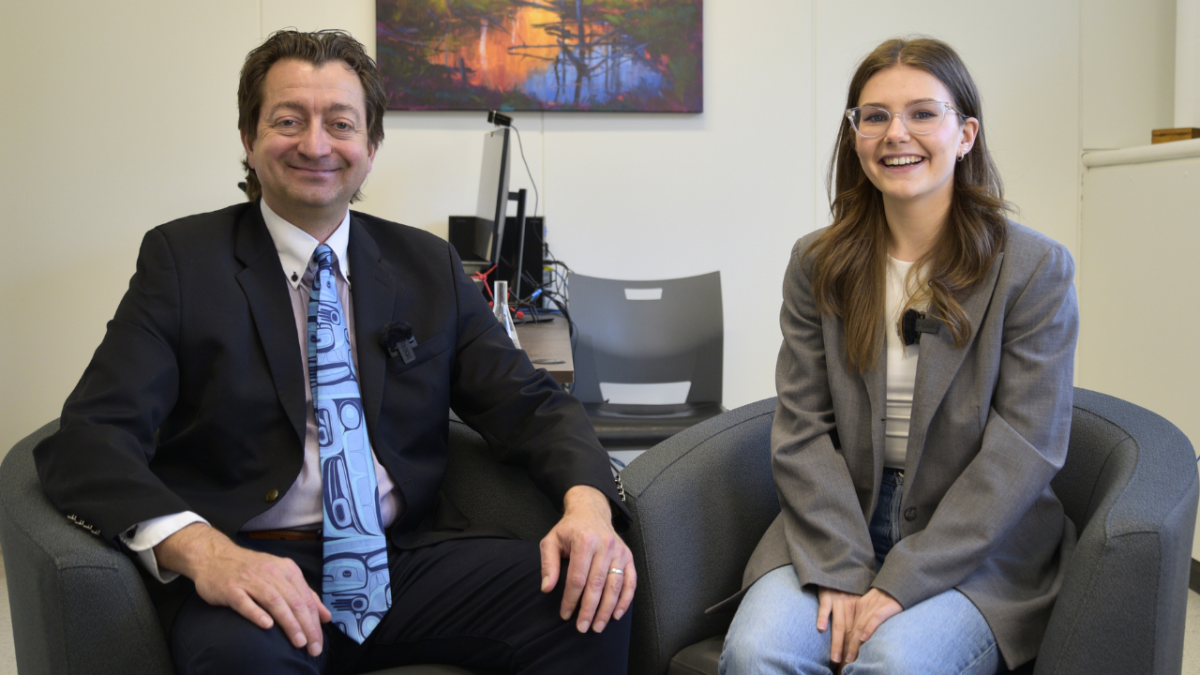
John Sorensen and Randi Roy.
From a fundamental discovery in a chemistry lab to a novel product for the market
It all started when John Sorensen, a chemistry professor, and his research team discovered an enzyme with an interesting reaction, a difficult step in the organic synthesis laboratory. The reaction normally requires multiple steps and many reagents without the same yields. But with the enzyme, it could be done in a single step in great condition. The discovery then sparked conversations about commercialization among the research team and how it could be put somewhere on a store shelf.







